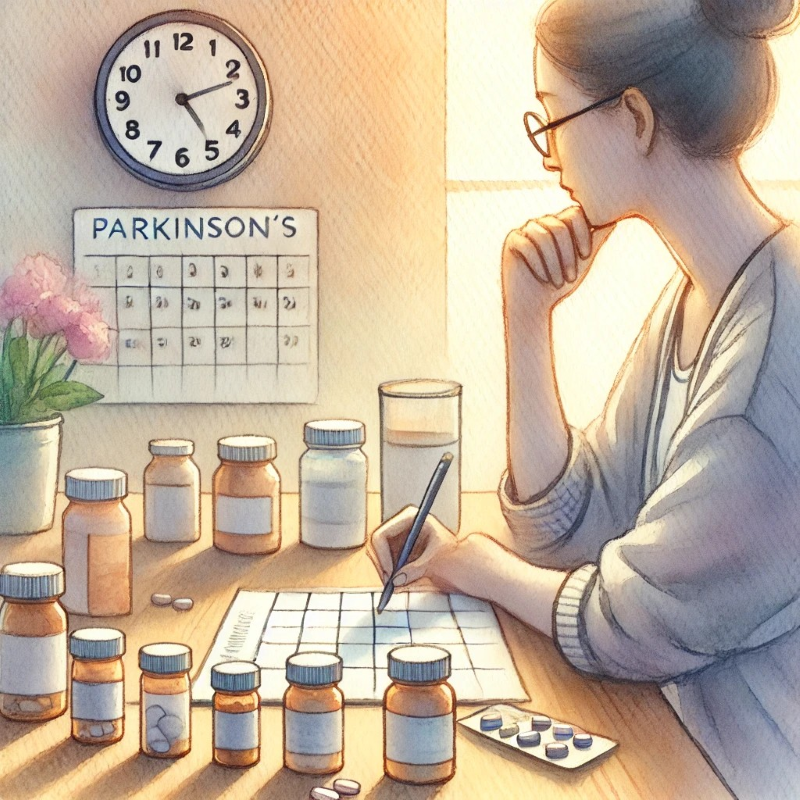Navigating Parkinson’s Medications

Living with Parkinson’s disease (PD) often means managing a complex medication regimen to control both motor and non-motor symptoms. Recently, a qualitative study explored the experiences of people with Parkinson’s disease (PwPD) regarding their medications. The insights gathered from patient focus groups highlight several critical themes that many in our community might find familiar.
Understanding Medication Effectiveness
One of the primary concerns among participants was the uncertainty surrounding medication effectiveness. Many PwPD questioned whether their medications were working as well as they could. Some days, symptoms seemed well-controlled, while on others, they wondered if the medication was doing anything at all.
“Some days the medication seems to work perfectly, and other days it’s like I didn’t take anything at all.”
This inconsistency led to feelings of doubt and the need to adjust expectations. It became clear that open communication with healthcare providers is essential to address these uncertainties and to set realistic goals for symptom management.
The Burden of Medication Schedules
Medication burden is another significant issue. Participants expressed frustration with the frequency and timing of doses, especially when it interfered with daily activities like meals or social events.
“I feel like my life revolves around my pill schedule. It’s hard to plan anything without considering when I need to take my next dose.”
Some even set alarms throughout the day or woke up during the night to take medications, highlighting how intrusive the regimen can be. This constant reminder of the disease can affect one’s quality of life and emphasizes the need for more manageable treatment options.
Navigating Side Effects
Dealing with side effects is a common challenge. PwPD often have to balance the benefits of symptom control with the drawbacks of adverse reactions. Side effects can sometimes mimic PD symptoms, making it difficult to determine their origin.
“Is this new symptom a progression of my Parkinson’s or just a side effect of the medication?”
This confusion underscores the importance of monitoring and discussing side effects with healthcare providers to adjust treatments as necessary.
Expressing Medication Preferences
Participants also shared their preferences and requests for future therapies. The desire for medications that are more effective with fewer side effects and less frequent dosing was a common theme. Many hoped for treatments that could slow disease progression or offer more extended relief from symptoms.
“I wish there was a medication that lasted longer so I wouldn’t have to take so many pills each day.”
There was also a call for more innovative research and advancements in PD treatments, reflecting a shared hope within the community for better management options.
The Importance of Communication and Shared Decision-Making
A recurring theme throughout the discussions was the need for improved communication between patients and healthcare providers. Shared decision-making can empower PwPD to take an active role in their treatment plans, ensuring that their preferences and concerns are addressed.
Conclusion
Managing Parkinson’s medications is a complex and deeply personal journey. The insights from this study highlight the challenges many of us face and underscore the importance of advocating for ourselves in clinical settings. By fostering open dialogues with our healthcare teams and staying informed about treatment options, we can work towards better health outcomes and an improved quality of life.
Keywords: Parkinson’s disease, Medication burden, Patient perspectives, Side effects, Treatment options
AI-generated medical content is not a substitute for professional medical advice or diagnosis; I hope you found this blog post informative and interesting. www.parkiesunite.com by Parkie
DALL·E Prompt: A watercolor painting of a person thoughtfully managing their Parkinson’s medication schedule, surrounded by pill bottles and a clock, in a gentle and hopeful mood.